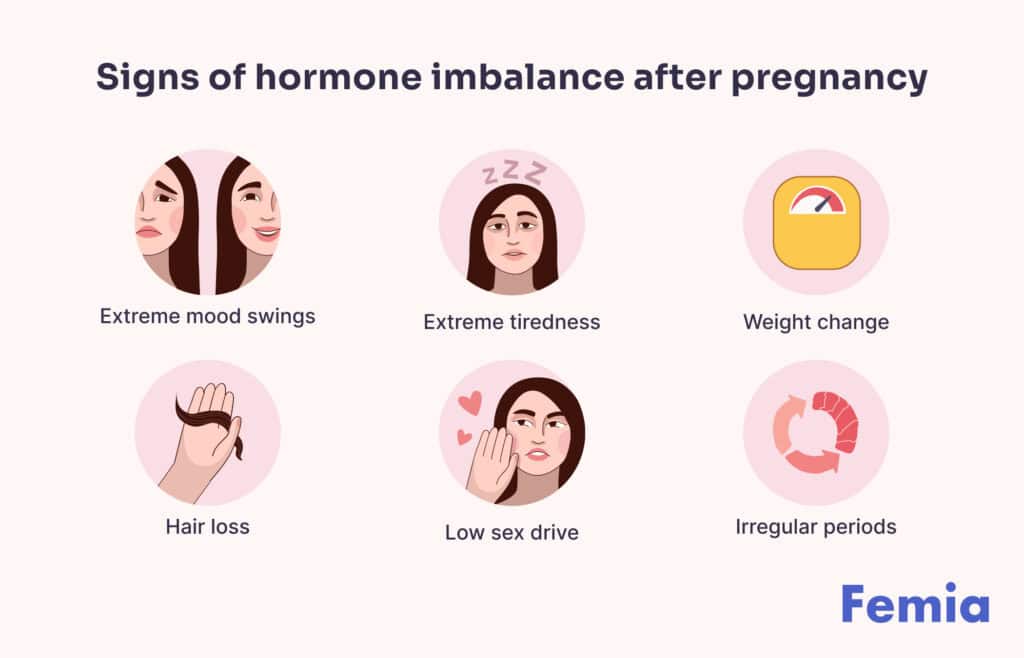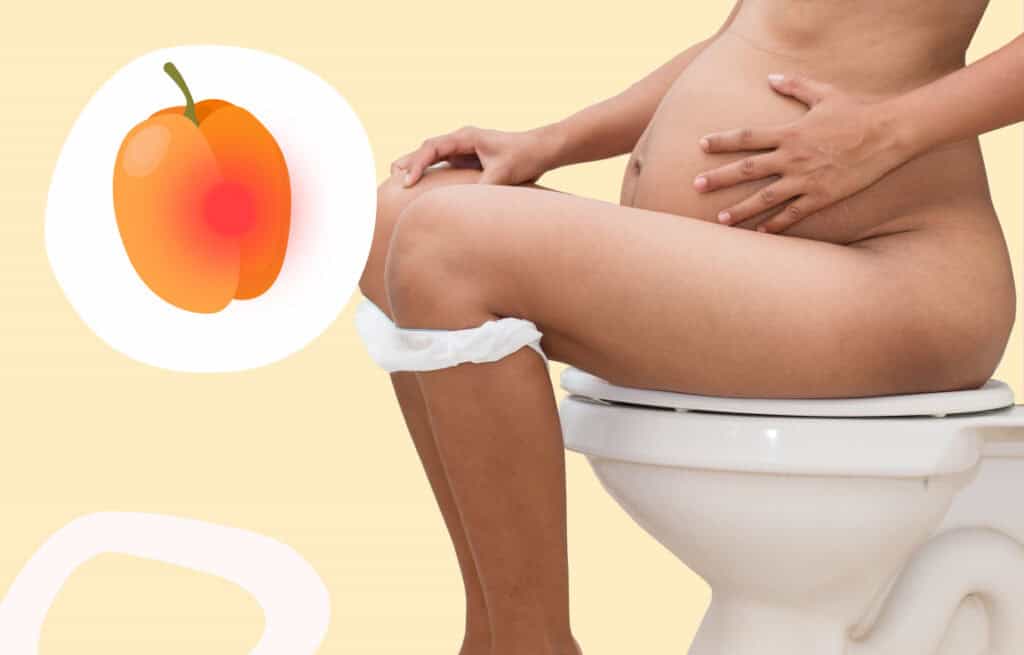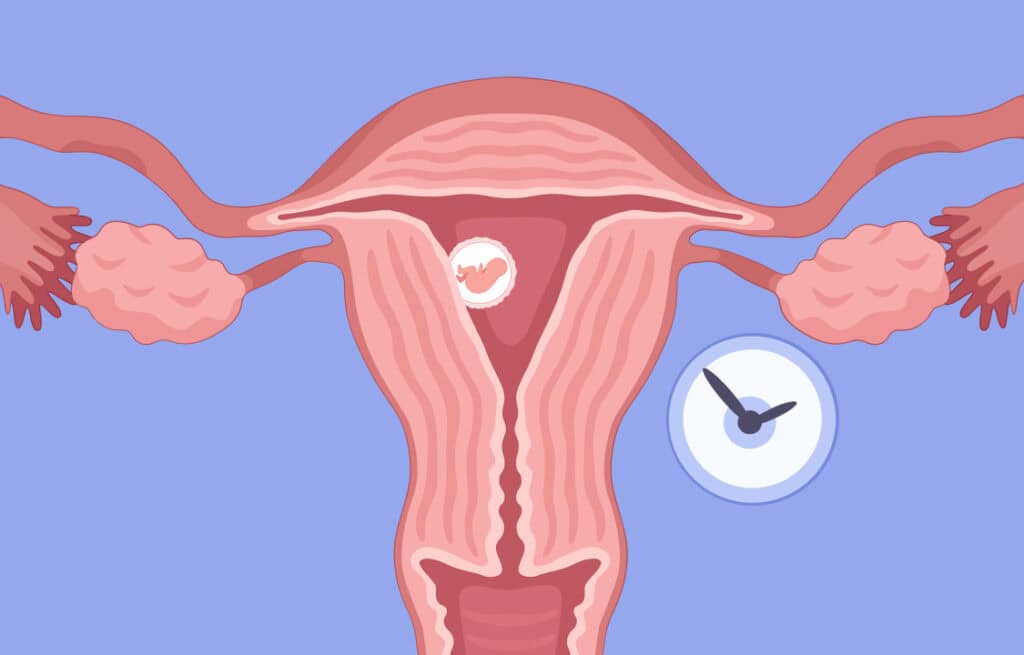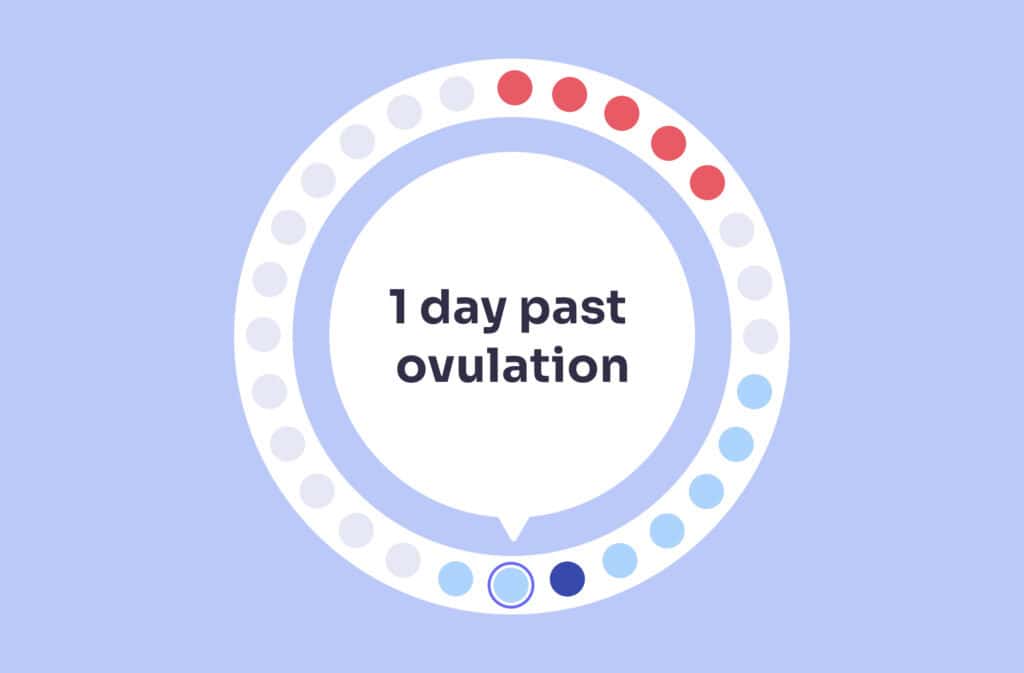Femia > Health Library > Being a mom > Recovering from birth > Signs of hormone imbalance after pregnancy: What to expect and when to seek help
Signs of hormone imbalance after pregnancy: What to expect and when to seek help

- Updated Feb 11, 2025
- Published
CRAFTED BY HUMAN
Crafted by human At Femia, we provide accurate and up-to-date information at every stage of your journey, from trying to conceive, pregnancy and postnatal support. All content is created by a real person based on in-depth research and own professional experience. Femia ensures that you will receive expert advice, strict accuracy and a personalized approach from our authors/medical experts. Learn more about our editorial policy.
FACT CHECKED
Fact checked At Femia Health, we maintain the highest standards of editorial excellence in delivering content focused on helping you conceive, guiding you through pregnancy, and supporting you postpartum. Explore our content review principles to learn how we ensure the accuracy and quality of our health and lifestyle tips for every stage of your journey.
Hormone imbalance after pregnancy:
- Signs include moodiness, extreme tiredness, weight changes, irregular periods, and low sex drive.
- Hormones should return to normal within a few months but factors like breastfeeding, poor sleep, high stress, and poor nutrition can affect your hormone recovery
- Lifestyle adjustments can help balance hormones but if your symptoms persist or impact your daily life, then contact your healthcare provider.
After pregnancy, your body undergoes major changes as it adjusts back to its pre-pregnancy state. One of the biggest challenges it faces is a postpartum hormone shift.
Every woman’s hormone recovery is unique and influenced by factors like stress, sleep, and breastfeeding. Some will find their hormones stabilize quickly, while others experience a longer-lasting imbalance. Understanding why hormone imbalances are common after childbirth and what symptoms to expect, can help you to support your body through this transition.
Femia offers the most accurate tool for tracking postpartum symptoms,
determining ovulation and fertile days
What is postpartum hormone imbalance?
During pregnancy, your body produces extra hormones to help your baby grow and develop, but after birth your hormones change and your body has to adjust to a sudden drop in levels. For many women, this adjustment happens relatively quickly and smoothly, but for others, it can take longer and lead to symptoms of hormonal imbalance.
To understand what a postpartum hormone imbalance is, let’s first take a look at normal pregnancy hormones and what happens to them postpartum (after you give birth):
1. Estrogen
- Role in pregnancy: High levels help to maintain the pregnancy, support the baby’s organ development, and enhance blood flow to the uterus.
- After birth: Estrogen levels drop quickly after delivery and remain low until you start ovulating again. This sudden and dramatic drop can cause mood swings, anxiety, and physical symptoms.
2. Progesterone
- Role in pregnancy: Progesterone is essential for maintaining the uterine lining and preventing contractions, miscarriage, and preterm labor.
- After birth: Like estrogen, progesterone levels plummet after birth, which can impact mood and energy levels.
3. Human Chorionic Gonadotropin (hCG)
- Role in pregnancy: hCG is the hormone detected in pregnancy tests, it plays a key role in sustaining early pregnancy by supporting progesterone production.
- After birth: hCG levels fall rapidly after childbirth and are usually undetectable for a few weeks.
4. Prolactin
- Role in pregnancy: Prolactin increases to prepare the body for breastfeeding by stimulating breast growth and milk production.
- After birth: Prolactin remains high if you’re breastfeeding, to help maintain milk supply. In non-breastfeeding mothers, prolactin levels gradually return to pre-pregnancy levels.
5. Oxytocin
- Role in pregnancy: Often called the “love hormone,” oxytocin encourages that initial ‘rush of love’ and helps with bonding. It also plays a role in uterine contractions during labor.
- After birth: Oxytocin remains important, especially in breastfeeding mothers, as it helps with milk letdown and continues to aid in bonding with the baby.
These rapid postpartum hormone changes are a natural part of the recovery process, but as your body adjusts to the new status quo it can be a challenging time for many new mums.
👉Find out more: Signs of ovulation after giving birth: What new moms need to know
How long should it take for hormones to balance after birth?
Most women’s hormones rebalance when they start ovulating again. If you’re not breastfeeding this is usually around the three-month mark but can be longer.
Some women can experience an imbalance for longer. Factors like chronic stress, lack of sleep, thyroid function, and personal health history can all contribute to prolonged hormone imbalance. If you have symptoms of hormone imbalance for longer than six months after giving birth, or symptoms that seem to be overly affecting your daily life, then consult a healthcare provider for a personal diagnosis. They may suggest medical tests like hormone testing.
Common postpartum hormone imbalance
Due to a sudden drop in hormones straight after giving birth, most new mums will experience what is commonly called the “baby blues.” According to the American College of Obstetricians and Gynecologists (ACOG), up to 85% of women will experience this common postpartum hormone imbalance. It usually begins 2–3 days after giving birth and can last up to two weeks.
Common symptoms of the “baby blues”:
- Mood swings
- Increased anxiety
- Feeling sad
- Crying
- Irritability
- Poor concentration
- Problems sleeping even when tired
- Feeling overwhelmed
If your baby blues’ symptoms last longer than two weeks, or started more than a few days after giving birth, then reach out to your healthcare provider. This could be a sign that you’re suffering from postpartum depression or anxiety.
Signs of hormone imbalance after pregnancy
While the baby blues can be distressing, for the majority of women, symptoms will ease after a few days. However, some may go on to experience symptoms of hormone imbalance several weeks or even months after giving birth.

It can be difficult to tell the difference between normal “post-baby” changes and symptoms caused by a postpartum hormonal imbalance but keep an eye out for any of these signs:
- Extreme mood swings. There are many reasons why your mood can fluctuate after giving birth but if these mood swings feel more extreme or constant then it could be a sign of postpartum depression.
- Extreme tiredness. Most new parents are tired, but this goes beyond normal levels of tiredness and feels like an overwhelming exhaustion that has a big impact on daily life.
- Weight change. Sudden or extreme weight loss or gain can indicate an underlying thyroid hormone imbalance.
- Hair loss. Hair loss postpartum is normal and isn’t a loss of hair but the body getting rid of excess hair that builds up during pregnancy. If it continues longer than a year though it could signal a hormone imbalance.
- Low sex drive (libido). Having a low or non-existent sex drive in the first few months can be completely normal. If this issue extends past six months then it could mean something else is going on.
- Irregular periods. Once your menstrual cycle resumes, it usually indicates that your hormones are back in balance, but if your periods are irregular there could still be an underlying hormonal imbalance.
- Other. Physical symptoms like postpartum dizziness and headaches can also indicate a hormone imbalance. These symptoms should be checked by a healthcare provider to rule out other causes.
If you’re experiencing signs of hormone imbalance after pregnancy, such as moodiness or extreme tiredness, it can be helpful to track your symptoms with a postpartum app to monitor your recovery and determine when to seek help from your healthcare provider if your symptoms persist or affect your daily life.
Postpartum thyroid hormone imbalance
A small percentage of women experience postpartum thyroiditis after giving birth. This happens when your thyroid gland becomes inflamed and can cause your body to produce too much (hyperthyroid) or too little (hypothyroid) of the thyroid hormone.
Signs that your thyroid is out of balance:
| Overactive thyroid (hyperthyroidism) | Underactive thyroid (hypothyroidism) |
|---|---|
| Feeling unusually warm | Feeling unusually cold |
| Excessive sweating | Extreme tiredness |
| Weight loss | Weight gain |
| Anxiety or nervousness | Muscle cramps and weakness |
| Fast heartbeat (palpitations) | Difficulty opening bowels (constipation) |
| Struggling to focus | Poor memory |
| Hair loss |
Occasionally, a thyroid hormone imbalance can cause severe symptoms. If you have any concerns about your thyroid then speak to your healthcare provider. They will be able to measure your thyroid hormone levels and start any necessary treatment.
| An important note on Postpartum depression (PPD) |
|---|
| Postpartum depression or anxiety affects 1 in 10 women within the first year after giving birth. It is important to remember that experiencing PPD is not your fault and you cannot prevent it. Feeling sad, anxious, irritable, or depressed does not mean that you love your baby any less, or are not a good parent. There are several treatment options available and your healthcare provider will be able to help you choose the best one for you. |
Low estrogen while breastfeeding: Symptoms and effects
Breastfeeding can lead to low estrogen levels because the body prioritizes prolactin. Prolactin is the hormone that stimulates milk production, and if you’re breastfeeding it will remain high after giving birth. High prolactin levels naturally suppress estrogen production, leading to a hormone imbalance. Low estrogen levels can cause the following symptoms:
- Low energy
- Moodiness
- Vaginal dryness
- Hot flashes
These symptoms are typically temporary and should improve as breastfeeding reduces or stops. There are some natural ways to increase your estrogen levels including through your diet. It’s a good idea to talk to a healthcare provider before starting new vitamins or supplements especially when you’re breastfeeding.
Hormone imbalance 1, 2, and 3 years after pregnancy
Hormone recovery after pregnancy can vary widely. Many will find their hormones stabilize within a few months, especially if they’re not breastfeeding, while others can experience a hormonal imbalance for one, two or even three years after giving birth.
Here are some reasons why your hormone imbalance might take longer to resolve:
- Poor sleep quality. A review published in the International Journal of Endocrinology found poor sleep can disrupt the body’s natural hormone regulation, causing an imbalance.
- Diet. Your diet can affect your hormone balance so eating a nutrient-rich diet high in omega-3, fiber, and natural estrogen and progesterone can help balance your hormones.
- High stress levels. Stress can disrupt hormones like cortisol, prolactin and thyroid hormones, leading to a longer recovery time.
- Breastfeeding. Causes high prolactin and low estrogen levels which can prolong the symptoms of hormonal imbalance.
Hormone recovery varies for each woman and can differ with each pregnancy. If you’re experiencing ongoing symptoms of hormonal imbalance, your healthcare provider can advise hormone testing and suggest lifestyle changes to help you naturally balance your hormones.
👉Find out more: Postpartum essentials for mom: A complete checklist for recovery
Signs of hormone imbalance after miscarriage or abortion
After a miscarriage or abortion, the body undergoes significant hormonal changes as it adjusts to the sudden end of pregnancy. Just like after childbirth, levels of hormones like estrogen and progesterone drop, leading to symptoms of hormonal imbalance.
- Physical symptoms. Fatigue, headaches, irregular periods and weight change can be common.
- Emotional symptoms. Both the trauma of experiencing a miscarriage or abortion, alongside hormonal changes, can cause mood swings, anxiety, irritability, and depression.
When to seek medical advice for postpartum hormone imbalance
It’s common for hormone levels to fluctuate after childbirth, but sometimes imbalances persist and may require professional support. Here are some signs that it may be time to seek medical advice:
- Persistent low mood or anxiety. If mental health symptoms last beyond a few weeks and interfere with daily life, it could indicate PPD or an imbalance that may benefit from treatment.
- Severe tiredness. While new parenthood is naturally tiring, extreme or long-lasting fatigue that doesn’t improve with rest could signal thyroid issues or other hormonal imbalances.
- Unexplained weight change. Sudden weight changes unrelated to diet or lifestyle can sometimes be linked to hormonal imbalances.
- Irregular periods. If your periods have returned, but they don’t go back to how they were within a few cycles then it could be a sign of an imbalance.
Your healthcare provider is the best person to advise you but there are several ways to treat hormone imbalance.
- Lifestyle changes. Diet, exercise, stress management, and improving sleep can support hormonal balance. Nutritional support may also be beneficial.
- Hormone therapy. This can be recommended to help balance estrogen, progesterone, or thyroid hormones. It is typically done under close medical supervision.
- Counseling or therapy. Emotional support, such as counseling, can also be helpful, especially for mood-related symptoms.
Femia offers the most accurate tool for tracking postpartum symptoms,
determining ovulation and fertile days
Questions from the Femia community
Can hormone imbalance affect breast milk production?
Yes, hormone levels, especially prolactin, play a role in milk supply, and so an imbalance can impact production. Other things that can impact milk production include lack of sleep, poor nutrition and high levels of stress.
Are there tests to check hormone levels postpartum?
Yes, a blood test can be used to check for imbalances in hormones like estrogen, progesterone, and thyroid levels. If you have any concerns about having a hormone imbalance then seek advice from a healthcare provider.
Does stopping breastfeeding suddenly impact hormone balance?
Yes, a sudden stop in breastfeeding can cause a hormonal shift, and some may notice temporary changes in mood or energy. These symptoms should resolve in a few days but a gradual decline in breastfeeding rather than a sudden stop can help reduce the intensity.
The bottom line
Your body experiences a big hormonal shift after pregnancy when hormones like estrogen and progesterone suddenly drop. Immediately after giving birth, many women will experience symptoms of hormonal imbalance including feeling tearful, anxious, or irritable. These symptoms should only last a few days and most women find that within a few months, their hormones are back in balance.
For some women though, especially if they’re breastfeeding, it can take longer for their hormones to settle. Making sure you’re getting enough sleep, eating a nutritious diet, and doing some light exercise can help your body balance hormones quickly. But, if you find that your symptoms of hormone imbalance last longer than a few weeks, or greatly affect your daily life, it could be a sign that your body needs some help. Reach out to your healthcare provider for advice on tests and treatments.
References
- Al-Chalabi, Mustafa, et al. “Physiology, Prolactin.” StatPearls – NCBI Bookshelf, 24 July 2023, www.ncbi.nlm.nih.gov/books/NBK507829.
- Author, Femia. “How to Increase Estrogen Naturally: Diet, Supplements and Lifestyle | Femia.” Femia Health, 24 Sept. 2024, femia.health/health-library/your-cycle/health/how-to-increase-estrogen-naturally.
- “How to Increase Progesterone Naturally: Diet, Lifestyle and Supplements | Femia.” Femia Health, 26 Sept. 2024, femia.health/health-library/your-cycle/health/how-to-increase-progesterone-naturally.
- “Period Vs. Miscarriage: Key Differences and When to Seek Help | Femia.” Femia Health, 20 Aug. 2024, femia.health/health-library/pregnancy/pregnancy-health/period-vs-miscarriage
- “Postpartum Dizziness: Causes, Duration, and Treatment | Femia.” Femia Health, 27 Aug. 2024, femia.health/health-library/being-a-mom/recovering/postpartum-dizziness.
- “Signs of Ovulation After Giving Birth: What New Moms Need to Know.” Femia Health, 17 Sept. 2024, femia.health/health-library/being-a-mom/recovering/signs-of-ovulation-after-giving-birth.
- Betz, Danielle, and Kathleen Fane. “Human Chorionic Gonadotropin.” StatPearls – NCBI Bookshelf, 14 Aug. 2023, www.ncbi.nlm.nih.gov/books/NBK532950/#:~:text=Human%20chorionic%20gonadotropin%20is%20a,the%20liver%2C%20and%20the%20colon.
- Cable, Jessie K., and Michael H. Grider. “Physiology, Progesterone.” StatPearls – NCBI Bookshelf, 1 May 2023, www.ncbi.nlm.nih.gov/books/NBK558960.
- Hair Loss in New Moms. www.aad.org/public/diseases/hair-loss/insider/new-moms.
- Hedges, Valerie L., et al. “Estrogen Withdrawal Increases Postpartum Anxiety via Oxytocin Plasticity in the Paraventricular Hypothalamus and Dorsal Raphe Nucleus.” Biological Psychiatry, vol. 89, no. 9, Nov. 2020, pp. 929–38. https://doi.org/10.1016/j.biopsych.2020.11.016.
- Kaludjerovic, Jovana, and Wendy E. Ward. “The Interplay Between Estrogen and Fetal Adrenal Cortex.” Journal of Nutrition and Metabolism, vol. 2012, Jan. 2012, pp. 1–12. https://doi.org/10.1155/2012/837901.
- Kim, Tae Won, et al. “The Impact of Sleep and Circadian Disturbance on Hormones and Metabolism.” International Journal of Endocrinology, vol. 2015, Jan. 2015, pp. 1–9. https://doi.org/10.1155/2015/591729.
- “Postpartum Thyroiditis.” Johns Hopkins Medicine, 23 July 2024, www.hopkinsmedicine.org/health/conditions-and-diseases/postpartum-thyroiditis.
- Prolactin Levels. medlineplus.gov/lab-tests/prolactin-levels/#:~:text=Prolactin%20affects%20many%20body%20processes,new%20mothers%20are%20normally%20high.
- Ranabir, Salam, and K. Reetu. “Stress and Hormones.” Indian Journal of Endocrinology and Metabolism, vol. 15, no. 1, Jan. 2011, p. 18. https://doi.org/10.4103/2230-8210.77573.
- “Summary of Perinatal Mental Health Conditions.” ACOG, www.acog.org/programs/perinatal-mental-health/summary-of-perinatal-mental-health-conditions.
- Walter, Michael H., et al. “The Role of Oxytocin and the Effect of Stress During Childbirth: Neurobiological Basics and Implications for Mother and Child.” Frontiers in Endocrinology, vol. 12, Oct. 2021, https://doi.org/10.3389/fendo.2021.742236.
- Website, Nhs. “Afterwards.” nhs.uk, 28 Mar. 2024, www.nhs.uk/conditions/miscarriage/afterwards/#:~:text=Your%20periods%20should%20return%20within,settle%20into%20a%20regular%20cycle.
- “Feeling Depressed After Childbirth.” nhs.uk, 18 May 2023, www.nhs.uk/conditions/baby/support-and-services/feeling-depressed-after-childbirth/#:~:text=%22Baby%20blues%22%20are%20probably%20due,feeling%20irritable%20or%20touchy.
“Feeling Depressed After Childbirth.” nhs.uk, 18 May 2023, www.nhs.uk/conditions/baby/support-and-services/feeling-depressed-after-childbirth.

Learn the in-depth guide about pregnancy hemorrhoids, including their causes, symptoms, treatment, prevention, and different stages of hemorrhoids during pregnancy.

How long does it take to get pregnant after sex? Click to find a step-by-step breakdown of the primary conception stages and learn what to expect on your journey.

Learn what to expect at 1 day past ovulation (1 DPO), early pregnancy symptoms, and hormonal changes to help you navigate the early stages of conception. Expert advice from Femia.

